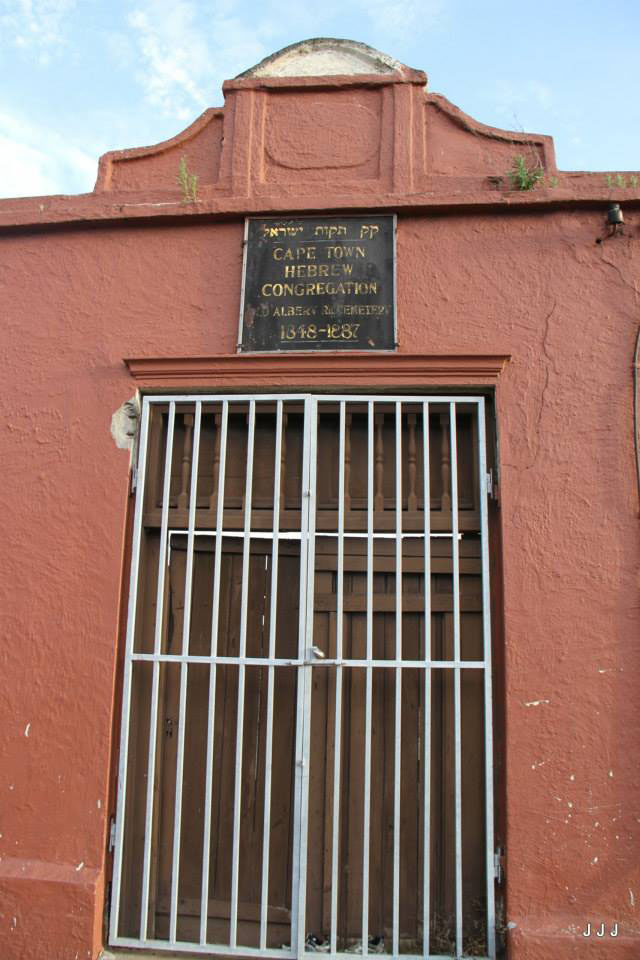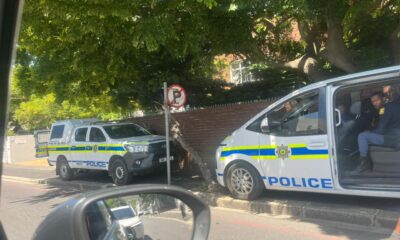
Community

First CT Jewish cemetery to be protected by national heritage body
When Jews first arrive in a new place and hope to establish a congregation, the first thing they do is to get land for a cemetery. This was what the fledgling Cape Town Hebrew Congregation did when it purchased two plots of land in Woodstock in the early 1840s, which became the first Jewish cemetery in Cape Town.
Now, the South African Heritage Resources Agency (SAHRA) would like to declare it a heritage site, along with a number of other historical and religious sites in nearby District Six.
“This is a big deal,” says Craig Nudelman of Mother City Jewish Tours and the Cape South African Jewish Board of Deputies (SAJBD). “With so many cemeteries being vandalised, this will ensure that the site is preserved and protected. Restoring cemeteries is expensive, and it’s difficult to work with the municipalities. In addition, not a lot of people know about the Albert Road Cemetery, and this will highlight its status as the first Jewish cemetery in Cape Town.
“The cemetery has always been considered a heritage site, governed by Western Cape heritage,” says Eric Berger, the executive director of the Jewish community’s Cemetery Maintenance Board (CMB). “This is a new organisation that will be a national body. The CMB maintains the cemetery and does repairs. We’re not permitted to disturb the graves or ground. We also keep the cemetery locked and secure.” He says there are 58 graves there.
Howard Phillips, emeritus professor of history at the University of Cape Town, also believes it’s a significant move. An expert on Jewish cemeteries in South Africa, he notes that this wasn’t the first cemetery to be established in South Africa – that was in Makhanda (formerly Grahamstown).
“The Albert Road Cemetery signifies almost two centuries of Jewish presence in the Mother City,” Phillips says. “The property was acquired by the Cape Town Hebrew Congregation in 1842. The first burial, of 41-year-old Abraham Horn, one of the congregation’s founding members, took place in December 1844. His son, Charles, was born after his death in 1845.”
Charles was possibly the first Jewish child born in Cape Town. “The cemetery was closed in 1887. Its Tahara House, only the foundation of which is now visible, was the first dedicated Jewish building in sub-Saharan Africa until the congregation acquired its first synagogue in 1849.”
At the time the land was bought, “it was out in a fairly remote area”, says Phillips. Today, the cemetery is hidden behind a wall and locked gate, next to a busy road. Few know about it, even those in the Jewish community.
“All Jews who died in Cape Town were buried in the Albert Road Cemetery until the 1880s, when it was closed. The community then bought a site in Maitland – not the main cemetery there today, but a smaller one.”
Says Daniel Bloch, the executive director of the Cape SAJBD, “The Cape SAJBD works tirelessly alongside our partners to preserve our Jewish heritage and ensure that the community remembers and acknowledges the contributions of all those who came before us. We commend SAHRA for not only protecting the site of the first Jewish cemetery in Cape Town, but for preserving other significant religious and educational landmarks associated with District Six.”
SAHRA is calling on the public to comment on its intention to declare the first phase of eight sites in and around District Six as national heritage sites. This includes two churches, two mosques, two schools, and the Albert Road Jewish Cemetery.
“The declaration of these sites as heritage sites will ensure their protection. No person may destroy, damage, deface, excavate, alter, remove from its original position, subdivide, or change the planning status of any site declared a national heritage site without a permit from SAHRA, and no person may damage any fence, wall, or gate constructed or sign erected by SAHRA in terms of subsection,” says the announcement.











Bernard Jacobs
December 17, 2024 at 6:35 am
Thanks,I, fully backs, support your intentions will these historical golden places.Im willing to be part of your board members too.